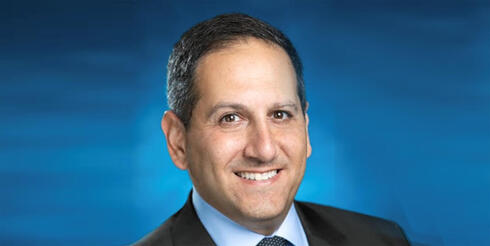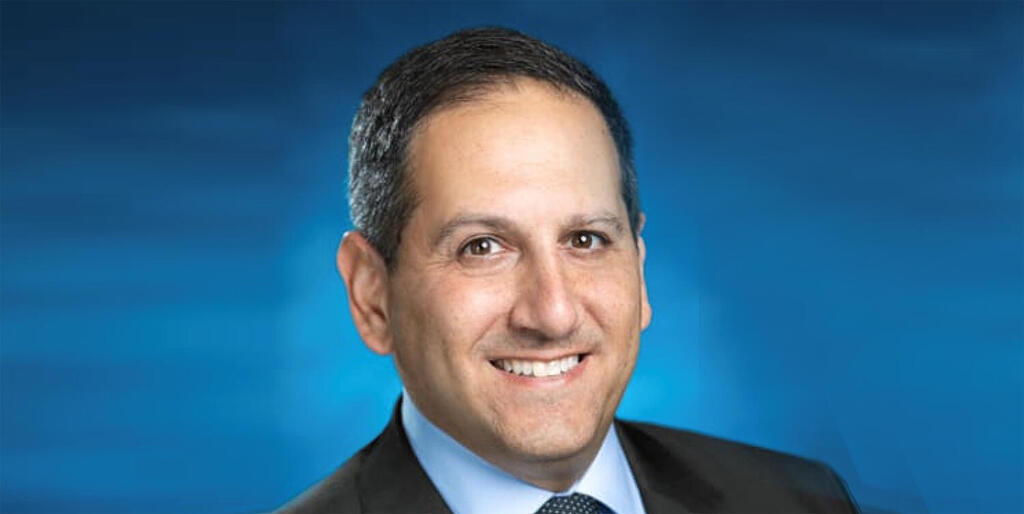
Interview
“The record activity of 2021 will be difficult to repeat”
Alain Dobkin, Israel Country head for investment bank Stifel, is bullish on the local market. "The markets here have matured significantly and I believe Israel is well-positioned to continue with its success on the global stage"
Private investments in Israel have increased five-fold over the past five years, surging from $5 billion in 2016 to $25 billion in 2021. The number of unicorns has also leapt from a mere 12 in 2012 to more than 100, with hundreds of additional companies being valued in the hundreds of millions of dollars. In addition, Israeli companies raised $11.7 billion in initial public offerings conducted overseas in 2021, more than the three previous years combined. This doesn’t include the 18 Israeli companies that went public via SPAC mergers in 2020-2021 at a total valuation of $60 billion. This tremendous growth hasn’t gone unnoticed by the large investment banks of the likes of Goldman Sachs, Credit Suisse and UBS, who battled it out for the lucrative deals.
However, while the financial giants fight it out for a piece in the biggest transactions, a void was also being created for the investment banks focused on medium-sized companies valued at less than $1 billion. One such bank who entered this void and opened a local office in December 2019 is Stifel, which to date has taken part in around 50 deals locally totaling over $28 billion. Stifel recruited Alan Dobkin to lead its local activity. Dobkin was previously a co-founder of Citigroup Investment Bank in Israel and served in senior positions at the bank for 13 years.
In an interview with Calcalist, Dobkin, Israel Country head for Stifel, provided his perspective on the state of the markets.
With all of the activity during the last two years what do you believe 2022 has in store?
“With the record activity of 2021, this will probably be difficult to repeat. Firstly, with all of the volatility in the public equity markets that started at the end of 2021, we are already seeing a significant slowdown in public equity offerings with the vast majority of companies that were considering accessing the markets delaying plans for at least a quarter or two. In addition, the incredible level of SPAC merger activity of the last two years has now come to an almost complete stop. This will be interesting to see how it plays out. What we do expect and are already seeing is a significant pick up in M&A activity, we at Stifel have already advised on three Israeli M&A transactions in 2022 and also many companies opting to raise private capital vs. accessing the public markets.”
What do you think will happen with all of the raised SPACs in the coming 12 months?
“That is a very good question. There are still around 500 to 600 SPACs that are looking for merger candidates, but securing a PIPE has become extremely challenging and redemptions are close to 90%. What I will say is there are a lot of smart SPAC sponsors out there with a lot of sponsor capital at risk. While it's possible many of them will not be able to get a deal done, I do believe there will be creative innovations that will enable many of them to complete transactions.”
What impact do you think the current war in Ukraine may have on the markets?
“I think there are a lot of variables at play here. Firstly, let’s hope this comes to some sort of truce near-term and return to stability and does not drag out or escalate into a larger conflict. Otherwise, while sanctions are a way to apply meaningful pressure, in this case the impacts on energy prices, food prices and overall inflation can’t be ignored. Many of these effects will take more time to see their full effect and I do have concerns on the impacts to the global economy and markets.”
What are your views on the current state of the capital markets?
“Things have clearly been very choppy since November – December. The market declines and volatility that started back towards the end of last year have in the past month or two accelerated. Global equities came under pressure in April. The S&P had its worst month since the initial panic of the Covid pandemic in March 2020.
“Looking at history, since 1962 there have been 17 non-recession S&P 500 corrections of greater than 10% which fell on average 16.95%. The current correction sees the S&P 500 at c. 4100 around 14% below December 2021 highs, so based on history we are somewhere close to the end of the current correction. The various geopolitics headwinds out of Ukraine and also China are clearly not helping. Stifel’s chief economists believe things will continue to be choppy through Q3 2022 but believe the S&P 500 bounces to around 4,800 in December 2022 when they expect the US Fed to pause rate hikes at the November Fed meeting.”
Stifel was founded in 1890 and has been a public company traded on the NYSE since 1983. Stifel has a market capitalization of $7.6 billion, revenues of $4.7 billion and manages client assets in excess of $436 billion. Having initially been established in the US, over the past 15 years Stifel has also expanded globally with offices and operations in the UK and Continental Europe, Canada, Hong Kong, Tel Aviv and elsewhere. With a strong middle market focus, Stifel leads the market in the category of M&A transactions of up to$1 billion and public equity offerings for companies with valuations of up to $1 billion over the last 10 years.
To what do you attribute the great success of Stifel in the Israeli market?
“Firstly, I believe that Stifel’s platform is just a really good fit with the Israeli market. Our middle market focus and our strong industry expertise across the technology, healthcare, industrials and consumer sectors make us relevant to the vast majority of companies and transactions in the Israeli market. We have been able to demonstrate the ability to really channel our industry and product expertise as well as our global relationships to the Israeli market. With market leading activity levels in the last two years, our consistent local calling effort and our list of satisfied clients, our reputation as a go-to trustworthy advisor is continuing to strengthen.”
What are the new and exciting trends that you are seeing in the Israeli market?
“I moved to Israel more than 20 years ago out of a sense of Zionist ideology but have always been amazed at the incredible entrepreneurs and innovation that I meet with an advise every day. It’s constantly evolving and amazing to see smart educated people apply and commercialize technologies across so many sectors and industries. We see a lot of continued promise in many of the key tech areas where we are active including in cyber, enterprise software, AI, semiconductors etc. Healthtech is also a very exciting sector with a lot of investor interest. Outside of the core sectors in technology and healthcare an emerging area we are getting really excited about and see significant potential is the foodtech arena. Israel appears to be at the forefront of the global foodtech sector across cultured meats, meat and protein alternatives, milk and formula alternatives, enriched super foods and more. What’s also interesting to see is how quickly early stage companies are able to get to commercialization and raise large triple digit capital rounds. We at Stifel are spending time in this sector.”
How do you view Israel and its prospects overall?
“Overall, I am personally very bullish on Israel in general and have been for more than 20 years. The markets here have matured significantly and I believe Israel is well-positioned to continue with its success on the global stage. I also believe this is true on a relative basis comparing to the U.S. and other leading global markets. While we also have our fair share of issues, Israel’s economic indicators are relatively strong and the country has many underlying positive factors supporting continued progress. Outside of the extraordinary level of investment into Israel which is off the charts on a per capita basis, one factor that is largely overlooked are the Israeli gas discoveries. With the massive quantities of gas discovered offshore, which are expected to account for tens of billions of dollars in revenues in the coming decades, the State of Israel is expected to enjoy significant royalties and tax income which should be a meaningful buoy to the economy. In addition, while real estate prices have increased dramatically and are relatively high, this is not a speculative market and homebuyers and investors are investing real equity in their purchases.”














